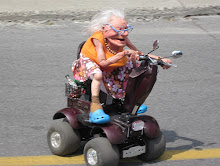
ST. LOUIS — Some say they have heard him shriek at the morning sun. Some claim to have glimpsed his feathered form strutting through the neighborhood's dark alleys. Some think he's pure fiction, Soulard's own, though significantly smaller, Yeti or Loch Ness monster he maybe.
But seen or heard, illusion or myth, one thing is clear: The rooster known as Jerry Seinfeld is an outlaw.Thanks to one city resident who couldn't take the crowing any more, Jerry and his fellow cockerels were banned from the city last fall."If you've ever lived next to a rooster, you'll get what I'm going to say," said Warren Dow, whose complaint ultimately led to the ban. "It's just the most continuous, piercing thing I've heard in six years of city living.
But it's a sound that more city dwellers are starting to hear.The rising number of urban homesteaders and backyard "chickeners" is forcing communities to deal with the unintended downside accompanying the growing trend. Sometimes that means a Jerry. Sometimes an irresponsible owner who let coop maintenance slide. Sometimes just figuring out what the law allows and where."A lot of these city councils get kind of blindsided. They realize: 'Oh my gosh. People have chickens, and we have to do something about it,'" said Andy Schneider, aka "The Chicken Whisperer," who hosts an increasingly popular backyard-chicken-centric radio show in Atlanta. "They're not up on it."As more city folks launch into chicken ownership, some are starting to question whether backyard chickens are such a good idea. More urban dwellers are complaining — St. Louis logged 40 complaints about chickens last year. One animal rights group is calling for cities to ban, not just roosters, but chickens altogether. Some city dwellers simply believe that urban environments should stay that way."I like the concept of people being close to the earth and growing their own food," Dow said. "But there's a good reason that farms and cities are separate."Some municipalities allow chickens up to a point. St. Louis, for example, limits the number of domestic animals, including chickens, at four. Others, like Ballwin, don't allow chickens at all, though at least one resident is pushing to change that."The more progressive cities are starting to allow them," said Robert Lughai, co-director of "Mad City Chickens," a 2009 documentary about the backyard chicken movement. Some people, however, are questioning whether cities should give chickeners the green light. A consortium of animal sanctuaries banded together late last year, calling on cities to "not allow backyard flocks and exhorting those that are already zoned for this practice to establish and enforce strict regulations."The group's members says the trend is producing thousands of unwanted birds."It's such a fad," said Susie Coston, of the New York-based group Farm Sanctuary, which rescues farm animals and advocates a vegan diet. "People have great intentions. They think they're not supporting industrial farming, and that's good. But I don't think they're being realistic."Coston worries people will neglect hens when they stop producing. But, more importantly, she's concerned about the boys.When aspiring owners decide to launch into the hobby, they usually buy chicks, hoping they will grow into hens that lay eggs. But despite hatcheries' efforts to provide females, the "sexing" process isn't foolproof, and sometimes those chicks mature into roosters. That means a surplus of roosters — and nowhere to put them.Bill Thompson, a new chicken owner who lives in south St. Louis, bought four chicks, two of which turned out to be roosters. He gave them to his vet. When the Maplewood-Richmond Heights school district bought 14 chicks, six were roosters, which had to be placed at homes in the country."Every week we get calls (about) roosters," said Coston. "If I took every rooster we get called for, we'd have thousands."But backyard chickeners say, with responsible ownership, chickens don't bother anyone, and a surplus of roosters is a small price to pay for the benefits chickens provide — from fresh eggs to insect control. They also point to one surprising benefit: A study found that a hen can consume about 7 pounds of food scraps a month, or about 84 pounds a year. "If a city had 2,000 households with three hens or more each, that translates to 252 tons of biomass that's diverted from landfills," Schneider said. "They are really good composters."Chicken advocates also point out that the chickens are treated as pets, and when a hen's productive years are over, they are far from neglected. They're often doted on like a member of the family — one that can eat bugs and provide fertilizer. One website, chickendiapers.com sells "diapers" that enable chickens to roam around indoors without soiling carpets. The owner reports that sales have climbed by 20 or 30 percent for the past few years."A lot of people, surprisingly, have them for pets," said Lughai, who in his film explores the bond people have with their chickens. "They're like a dog or cat."Jerry Seinfeld, Soulard's elusive cockerel, however, is no pet. He's an enigma. No one knows where he came from, whether he has a home or whether he was an unwanted rooster turned loose."Jerry isn't owned by anyone," said Phyllis Young, the alderman who introduced the ordinance that turned Jerry into a criminal.Still, while he's no longer legal, Jerry will probably remain a renegade. And with the backyard chicken momentum showing no signs of slowing, he will likely have more company. "I don't think anyone's going to do anything about it," Young said. "It's not like we have a rooster ranger."


1 comment:
Hi Patsy, So sorry to hear how sick you have been and glad to hear you feel somewhat better. Maybe, if spring will come on and you can get out in the sun you will feel a lot better. I am thinking of you. One of my favorite things about the farm was listening to the rooster crow in the mornings! I can't imagine having a rooster ranger.
Post a Comment